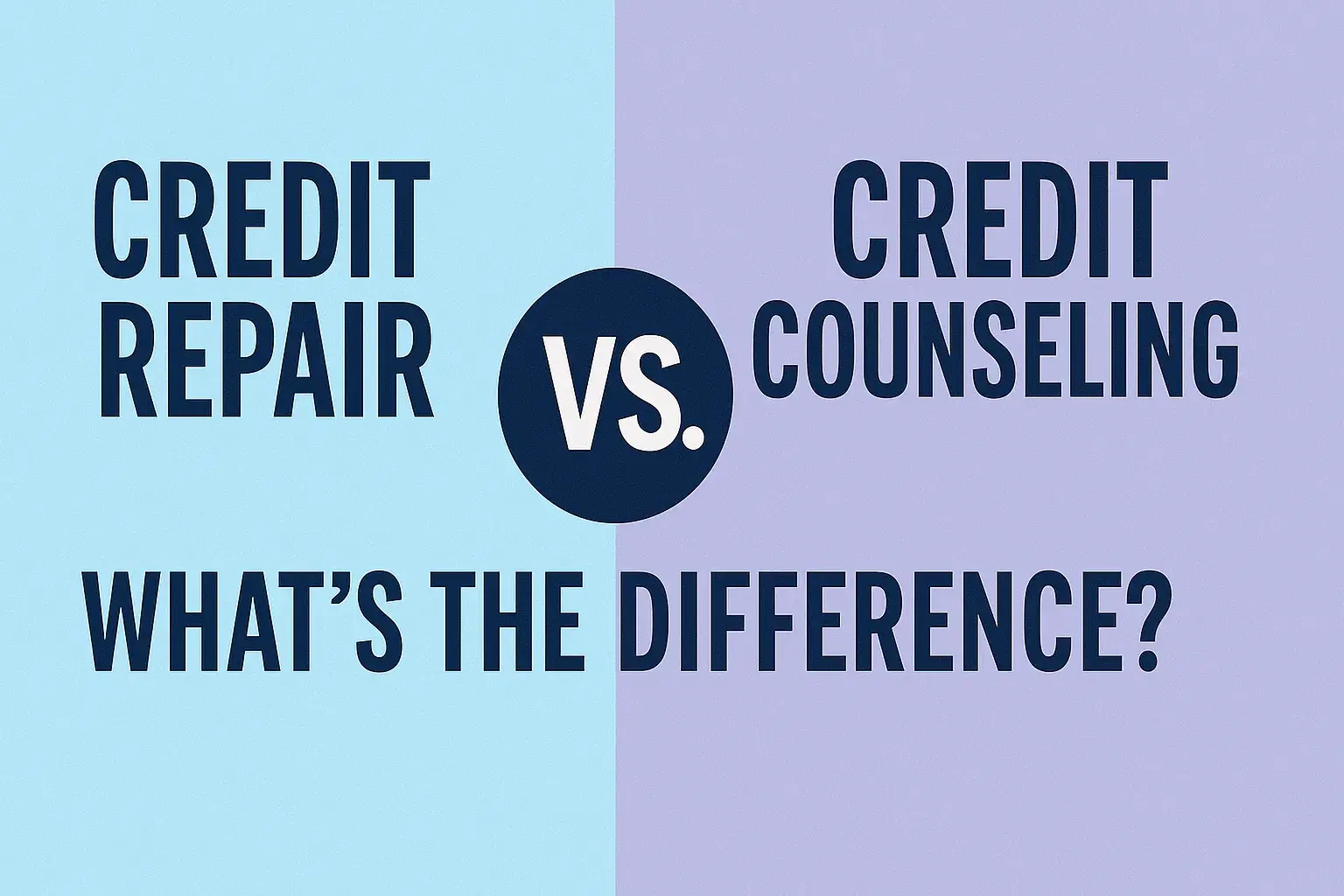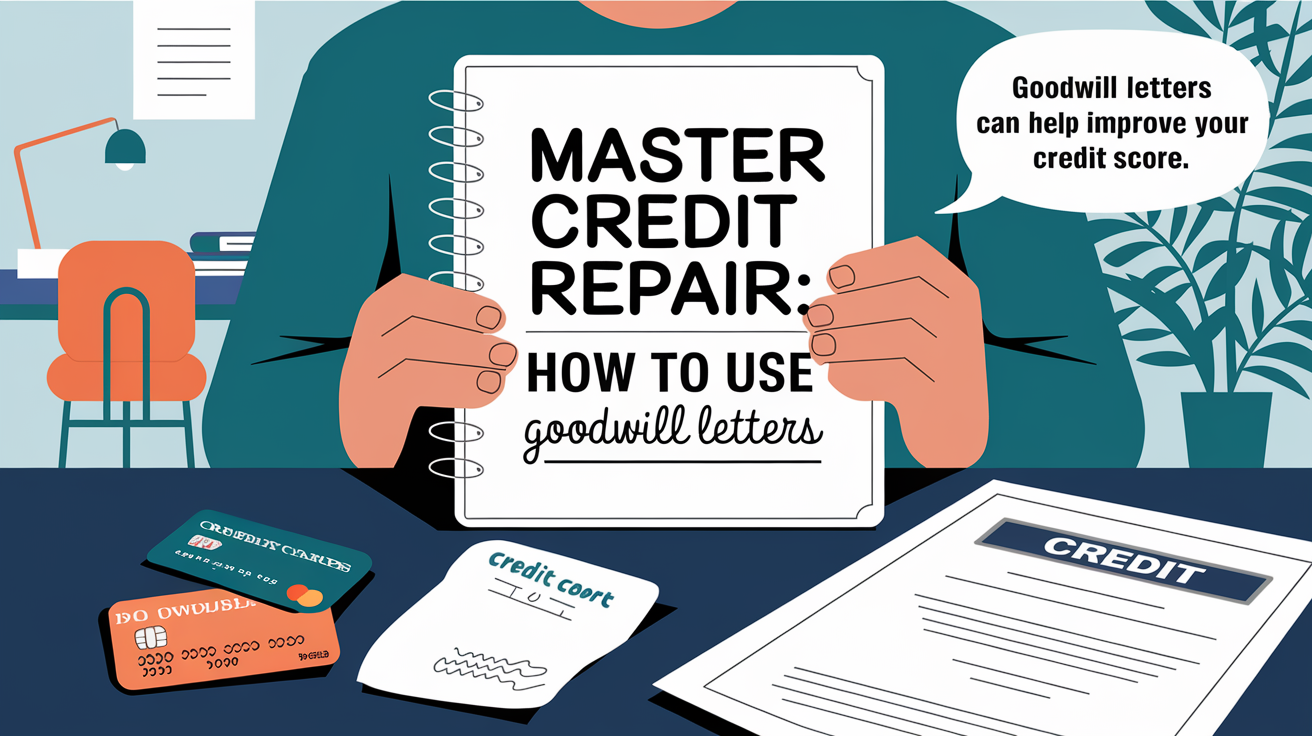Good Credit Repair Services: Worth the Investment?

Considering credit repair services? This in-depth guide explores whether investing in professional help is truly worthwhile for improving your financial standing, backed by 2025 insights and expert analysis.
What Are Credit Repair Services?
Credit repair services are companies that offer to help individuals improve their credit scores and reports. They typically achieve this by identifying and disputing errors on your credit reports, negotiating with creditors, and advising on strategies to build positive credit history. These services aim to remove inaccurate negative information, such as late payments, bankruptcies, or collections, that are dragging down your creditworthiness. While they cannot magically remove accurate negative information, their expertise in navigating credit reporting laws and creditor communication can be a valuable asset for many.
How Do Credit Repair Services Work?
The process typically begins with a consultation where the credit repair service reviews your credit reports from the three major bureaus: Equifax, Experian, and TransUnion. They'll look for inaccuracies or potentially disputable items.
The Dispute Process
Once potential errors are identified, the service will draft and send dispute letters to the credit bureaus and the original creditors on your behalf. This process is governed by the Fair Credit Reporting Act (FCRA), which requires bureaus to investigate disputes within a reasonable timeframe, usually 30-45 days. The service will then follow up on these disputes and continue the process until the errors are corrected or they determine no further action can be taken.
Negotiations with Creditors
Some credit repair services may also offer to negotiate with creditors on your behalf, particularly for outstanding debts or collection accounts. This can involve seeking settlements for less than the full amount owed or arranging payment plans. However, it's crucial to understand that this is not always successful and can sometimes involve risks if not handled correctly.
Credit Education and Guidance
Beyond disputing errors, many reputable services provide ongoing advice on how to manage your credit responsibly. This can include tips on budgeting, managing credit utilization, and understanding the impact of new credit applications on your score. This educational component is vital for long-term credit health.
The Potential Benefits of Using Credit Repair Services
Investing in a credit repair service can offer several advantages, particularly for individuals who are overwhelmed by the complexity of credit reports or lack the time and knowledge to tackle the process themselves.
Expertise and Knowledge of Credit Laws
Credit repair professionals are well-versed in consumer protection laws like the FCRA. They understand the nuances of credit reporting and the specific procedures required to challenge inaccuracies. This specialized knowledge can be more effective than a layperson attempting the same process, especially when dealing with complex disputes.
Time Savings
Disputing errors, communicating with credit bureaus and creditors, and tracking progress can be incredibly time-consuming. For busy individuals, outsourcing this task to a professional service can free up valuable time and reduce stress.
Objective Assessment
Sometimes, it's difficult to objectively assess your own credit report. A credit repair specialist can provide an unbiased review, spotting issues you might overlook or dismiss. They can identify patterns and strategies that might not be apparent to you.
Potential for Faster Results
While there's no guaranteed timeline, experienced credit repair services often have established relationships and streamlined processes that can lead to faster resolution of disputes compared to an individual working alone. This can be crucial if you're on a tight deadline for a loan or other financial goal.
Removal of Inaccurate Negative Information
The primary goal is to remove incorrect negative entries. For instance, a late payment that was actually made on time, a debt that was already settled, or an account that doesn't belong to you can significantly impact your score. Successfully removing these can lead to a noticeable credit score increase. As of 2025, studies indicate that an estimated 20% of credit reports contain errors significant enough to affect a consumer's credit score.
Negotiation of Debts
In some cases, services can negotiate with creditors to settle debts for a lower amount than originally owed. While this is not always possible and carries its own considerations, a successful negotiation can reduce your overall debt burden.
The Potential Drawbacks and Risks
Despite the potential benefits, it's essential to be aware of the downsides and risks associated with credit repair services. Not all services are created equal, and some may even engage in deceptive practices.
Cost
Most credit repair services charge fees, which can be a significant expense. These fees can be structured as monthly retainers, per-item charges, or a combination. It's crucial to understand the full cost upfront before committing. For 2025, average monthly fees can range from $50 to $150, with some charging additional setup fees.
No Guarantees
No legitimate credit repair service can guarantee specific results or a particular score increase. They cannot promise to remove accurate negative information. Be wary of any company making such claims, as they are likely fraudulent.
Scams and Deceptive Practices
The credit repair industry has unfortunately attracted its share of scams. These fraudulent companies often charge high upfront fees, make unrealistic promises, and do little to actually help clients. Some may even advise clients to take illegal actions, such as creating new credit identities. The Federal Trade Commission (FTC) consistently warns consumers about these pitfalls.
Limited Impact on Accurate Information
Credit repair services can only dispute inaccurate or outdated information. They cannot remove negative items that are true and within the reporting period (typically seven years for most negative items, ten for bankruptcies). If your credit issues stem from genuine financial mismanagement, a credit repair service may not be the solution you need.
Potential for Damage if Handled Poorly
If a service uses aggressive or improper dispute tactics, it could potentially flag your credit file and lead to more scrutiny or even harm your credit score in the long run.
DIY is Often Possible
Many of the tasks performed by credit repair services can be done by consumers themselves for free. This includes obtaining your credit reports, identifying errors, and submitting disputes to the credit bureaus.
Factors to Consider When Choosing a Service
Selecting a reputable credit repair service requires careful due diligence. Here are key factors to evaluate:
Reputation and Reviews
Research the company's history, read online reviews from multiple sources, and check with the Better Business Bureau (BBB). Look for patterns in customer feedback regarding their effectiveness, transparency, and customer service.
Fees and Contract Terms
Understand the fee structure completely. Are there setup fees? Monthly fees? Per-item fees? What is the contract length? Ensure there are no hidden charges and that you can cancel the service at any time without penalty. The Credit Repair Organizations Act (CROA) prohibits charging fees before services are rendered.
Transparency and Communication
A good service will be transparent about its process, fees, and what you can realistically expect. They should provide regular updates on your progress and be readily available to answer your questions.
Services Offered
Does the service specialize in disputing errors, negotiating debts, or both? Do they offer credit education and ongoing advice? Ensure their services align with your specific needs.
BBB Accreditation and State Registration
Check if the company is accredited by the Better Business Bureau. Also, verify if they are registered to operate in your state, as many states have specific regulations for credit repair organizations.
Avoid Upfront Fees for Services Not Yet Rendered
As mandated by the CROA, legitimate services should not charge you for services before they are performed. They can charge a fee for reviewing your credit report, but any significant fees for dispute work should be paid after the work has been done.
Comparing Credit Repair Services in 2025
The landscape of credit repair services continues to evolve, with new technologies and approaches emerging. In 2025, consumers have access to more data and tools than ever before to make informed choices.
Key Players and Their Offerings
Several companies have established themselves as leaders in the industry. For instance, services like Lexington Law are known for their aggressive legal approach and extensive experience. Others, like Credit Saint, offer tiered service plans to cater to different budgets and needs. Newer entrants are often leveraging AI-driven analysis for faster error detection.
Average Costs in 2025
As mentioned, monthly fees typically range from $50 to $150. Setup fees can add an additional $50 to $200. It's crucial to compare these costs against the potential benefits and the value of your time.
Example: Cost Comparison Table (Hypothetical 2025 Data)
| Service Provider | Monthly Fee Range | Setup Fee Range | Typical Contract Length | Key Features |
|---|---|---|---|---|
| Service A (Established Legal Focus) | $99 - $149 | $100 - $200 | Month-to-month | Aggressive disputes, dedicated account manager |
| Service B (Tiered Plans) | $50 - $120 | $50 - $100 | Month-to-month | Basic, Moderate, Aggressive plans; credit monitoring included |
| Service C (Tech-Forward) | $75 - $130 | $75 - $150 | Month-to-month | AI-powered analysis, mobile app access |
Note: This table provides hypothetical examples for 2025. Actual costs and features vary.
Success Rates and Client Testimonials
While exact success rates are hard to quantify due to varying client situations, look for services that provide case studies or aggregate data on the types of issues they resolve. Client testimonials can offer insights, but always view them critically.
The Role of Credit Monitoring
Many credit repair services include credit monitoring as part of their package. This is essential for tracking your progress and being alerted to any new issues. In 2025, integrated credit monitoring with real-time alerts is a standard expectation.
When is a Credit Repair Service Worth the Investment?
Determining if a credit repair service is a worthwhile investment depends heavily on your individual circumstances, financial literacy, and available resources.
You Have Significant Errors on Your Credit Report
If your credit reports contain numerous inaccuracies that are negatively impacting your score, a service with expertise in disputing these errors can be highly beneficial. This is especially true if you've already tried to dispute them yourself without success. For example, if you have an account listed that you've never opened, or a late payment that was paid on time, a professional can often navigate the complex dispute process more effectively.
You Lack the Time or Knowledge to Do It Yourself
Credit repair requires time, persistence, and a good understanding of consumer credit laws. If you're juggling a demanding job, family responsibilities, or simply feel overwhelmed by the process, outsourcing can be a smart move. The stress reduction alone can be worth the cost for some.
You're Facing a Critical Financial Goal
If you need to improve your credit score quickly for a mortgage application, a car loan, or to qualify for better insurance rates, a credit repair service might help expedite the process. However, remember that results are not guaranteed and depend on the nature of the issues.
You've Tried DIY and Failed
If you've spent months trying to correct errors on your own and haven't seen progress, it might be time to bring in the professionals. They may have different strategies or more leverage in dealing with credit bureaus and creditors.
You Can Afford the Fees Without Further Financial Strain
The cost of credit repair services is a significant factor. If paying the fees will put you in a precarious financial situation, it's likely not a good investment. You should only consider these services if you have the disposable income to cover them without compromising your ability to meet essential expenses or pay down existing debts.
Your Credit Issues Are Primarily Due to Inaccuracies
If your credit score is low primarily because of identity theft, incorrect account information, or other verifiable errors, a credit repair service is more likely to be effective. If your score is low due to legitimate, but negative, credit history (e.g., consistent late payments, high credit utilization), a credit repair service has limited ability to help. In such cases, focusing on responsible credit management and debt reduction is more crucial.
Illustrative Scenario:
Consider Sarah, a single mother working two jobs. She discovered a fraudulent account on her credit report that was significantly impacting her ability to get approved for a new apartment. She attempted to dispute it herself but faced lengthy delays and confusing communication from the credit bureau. She decided to hire a credit repair service that specialized in identity theft cases. Within three months, the fraudulent account was removed, and her credit score improved enough for her to secure the apartment. For Sarah, the investment was clearly worth it.
Conversely, consider Mark, who has a history of overspending and consistently carries high balances on his credit cards. While he might have a few minor inaccuracies on his report, his primary issue is his high credit utilization and debt load. A credit repair service could dispute the minor errors, but it wouldn't address his core financial habits. In this case, Mark would likely find more value in a reputable credit counseling service that focuses on budgeting and debt management, rather than a credit repair service.
Alternatives to Credit Repair Services
Before committing to a credit repair service, explore these alternatives, many of which are free or significantly less expensive.
DIY Credit Repair
As highlighted, you have the legal right to dispute errors on your credit reports yourself.
- Obtain Your Credit Reports: Visit AnnualCreditReport.com to get your free reports from Equifax, Experian, and TransUnion.
- Review Carefully: Scrutinize each report for any inaccuracies, such as incorrect personal information, accounts you don't recognize, or incorrect payment histories.
- Gather Documentation: Collect any evidence that supports your claim (e.g., proof of payment, statements, letters from creditors).
- Submit Disputes: Contact the credit bureaus directly. You can do this online, by mail, or by phone. Clearly state the error and provide your supporting documentation.
- Follow Up: Keep records of all communication and follow up with the bureaus if you don't receive a timely response or resolution.
While this requires effort, it's the most cost-effective method.
Non-Profit Credit Counseling Agencies
Organizations accredited by the Institute of Consumer Financial Education (ICFE) or the National Foundation for Credit Counseling (NFCC) offer invaluable services. They can provide:
- Budgeting and financial management advice.
- Debt management plans (DMPs) where they negotiate with creditors for lower interest rates and consolidated payments.
- Education on credit building and responsible financial habits.
These services are often free or very low-cost. They address the root causes of credit problems, not just the symptoms.
Credit Monitoring Services
While not a repair service, subscribing to a credit monitoring service can alert you to changes on your credit reports, including new accounts or inquiries, which can help you spot potential fraud or errors early. Many credit repair services include this, but you can also get it independently.
Direct Negotiation with Creditors
If you owe money to creditors, you can attempt to negotiate directly with them yourself. This might involve asking for a settlement for less than the full amount or arranging a payment plan. Be prepared to explain your situation and have a reasonable offer in mind.
Financial Education Resources
Numerous free online resources, government websites (like the Consumer Financial Protection Bureau - CFPB), and libraries offer information on credit scoring, debt management, and financial planning. Investing time in educating yourself can empower you to make better financial decisions.
Making an Informed Decision
The question of whether good credit repair services are worth the investment is nuanced. They can be a valuable tool for specific situations, particularly when significant, verifiable errors plague your credit reports, and you lack the time or expertise to address them yourself. The expertise of professionals in navigating complex credit laws and dispute processes can lead to positive outcomes, such as the removal of inaccurate negative information, which can significantly boost your credit score. Furthermore, for those facing critical financial milestones like securing a mortgage or a loan, the potential for faster improvement might justify the cost.
However, it's crucial to approach these services with caution. The industry is rife with potential scams and deceptive practices. Legitimate services cannot guarantee results, and their effectiveness is limited to correcting inaccuracies. If your credit issues stem from genuine financial mismanagement, a credit repair service will not solve the underlying problems. The costs associated with these services can also be substantial, ranging from $50 to $150 per month, plus potential setup fees. For many, the most effective and cost-efficient approach involves understanding their rights and utilizing free resources.
Recommendation: Before hiring a credit repair service, always start by obtaining your free credit reports from AnnualCreditReport.com and meticulously reviewing them for errors. If you find inaccuracies, attempt to dispute them yourself first. If the errors are complex, or if you've tried and failed, and you have the financial capacity without creating further debt, then research reputable credit repair companies thoroughly. Prioritize services that are transparent about their fees, process, and have strong customer reviews. Consider non-profit credit counseling agencies as a more comprehensive alternative if your issues are primarily related to debt management and financial habits. Ultimately, the decision hinges on a realistic assessment of your credit situation, your personal resources, and your tolerance for risk versus the potential reward.
Related Stories
Recent Posts
Does Closing a Checking Account Affect Your Credit Score? Here’s the Truth
Is a Home Equity Loan a Second Mortgage? The Definitive 2025 Guide
Which Credit Score is Most Accurate? FICO vs VantageScore
Does Closing a Checking Account Affect Credit Score? – Complete Guide for Consumers
Credit Captain Reviews (2025): Is It Legit, Safe, and Worth It?



